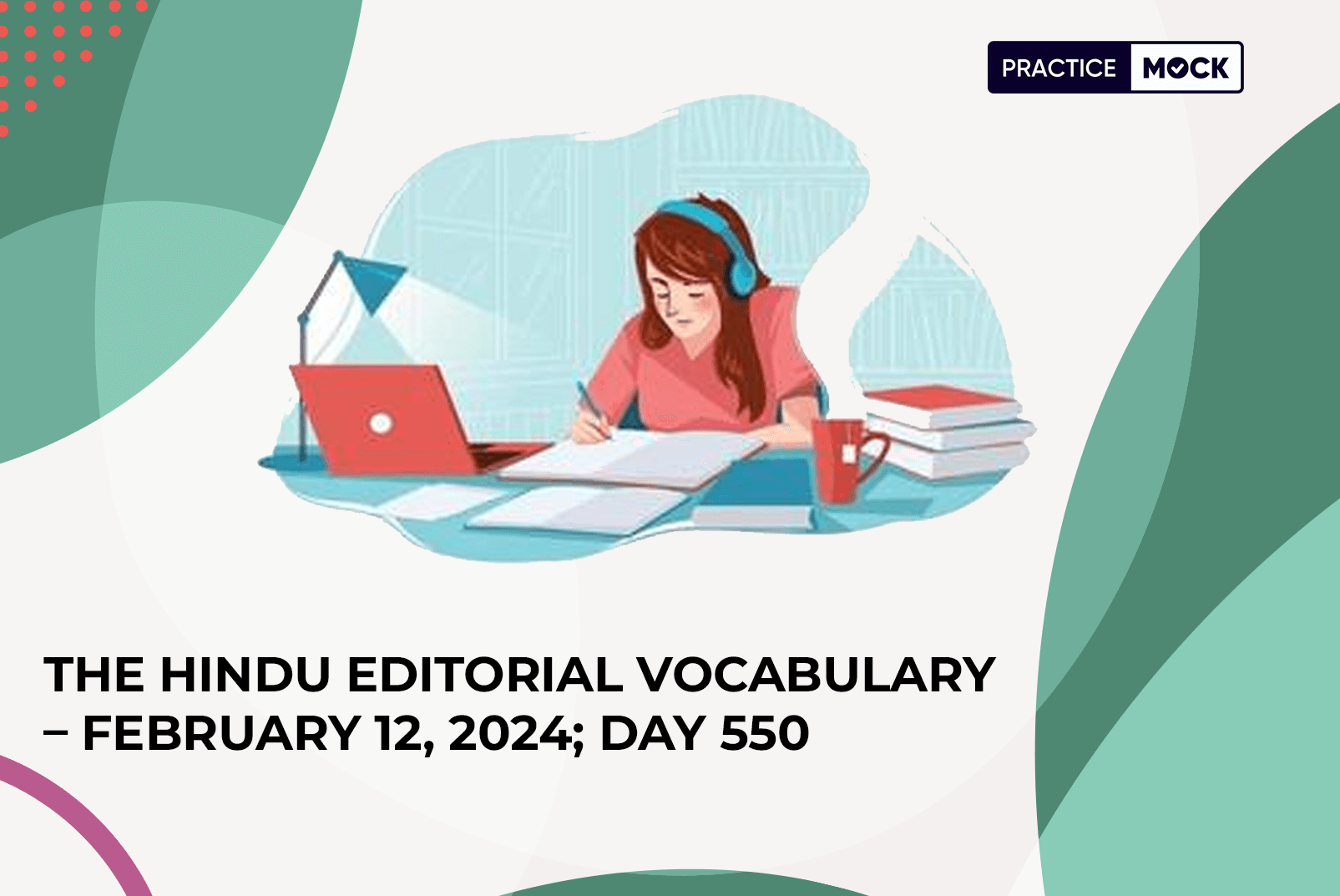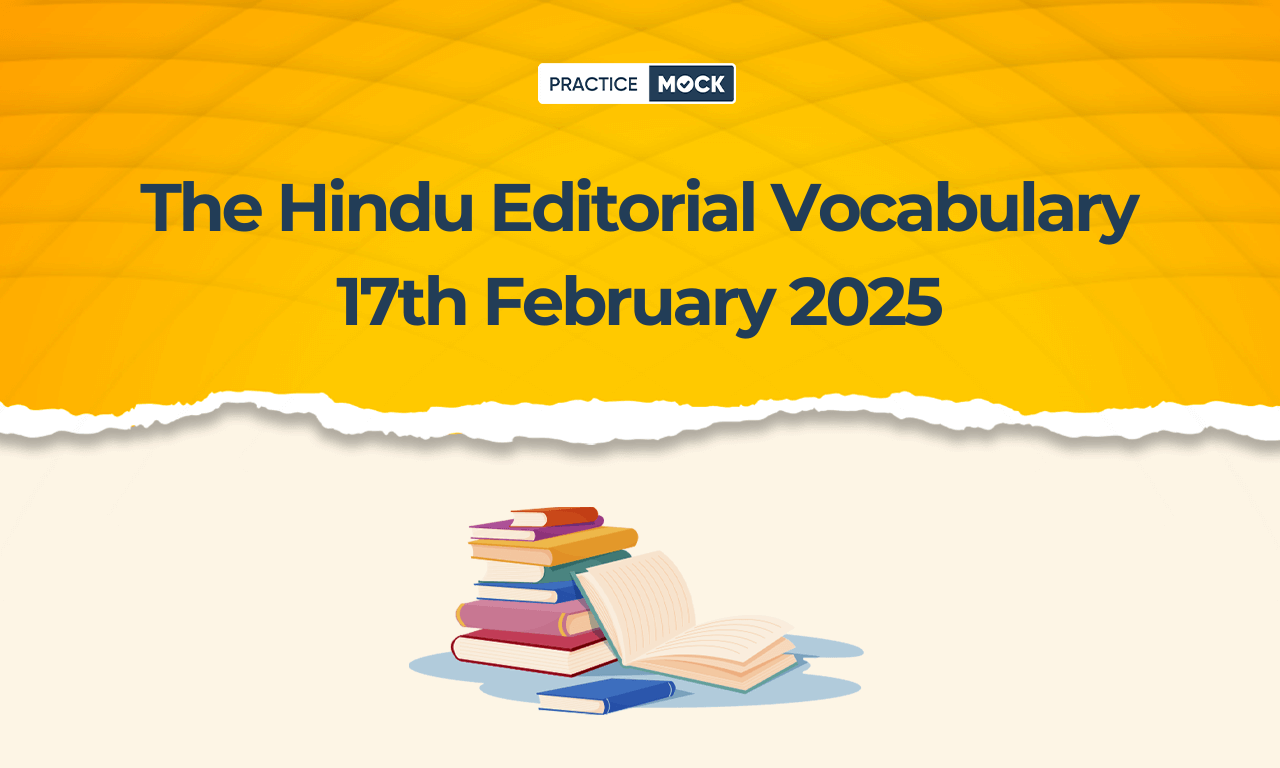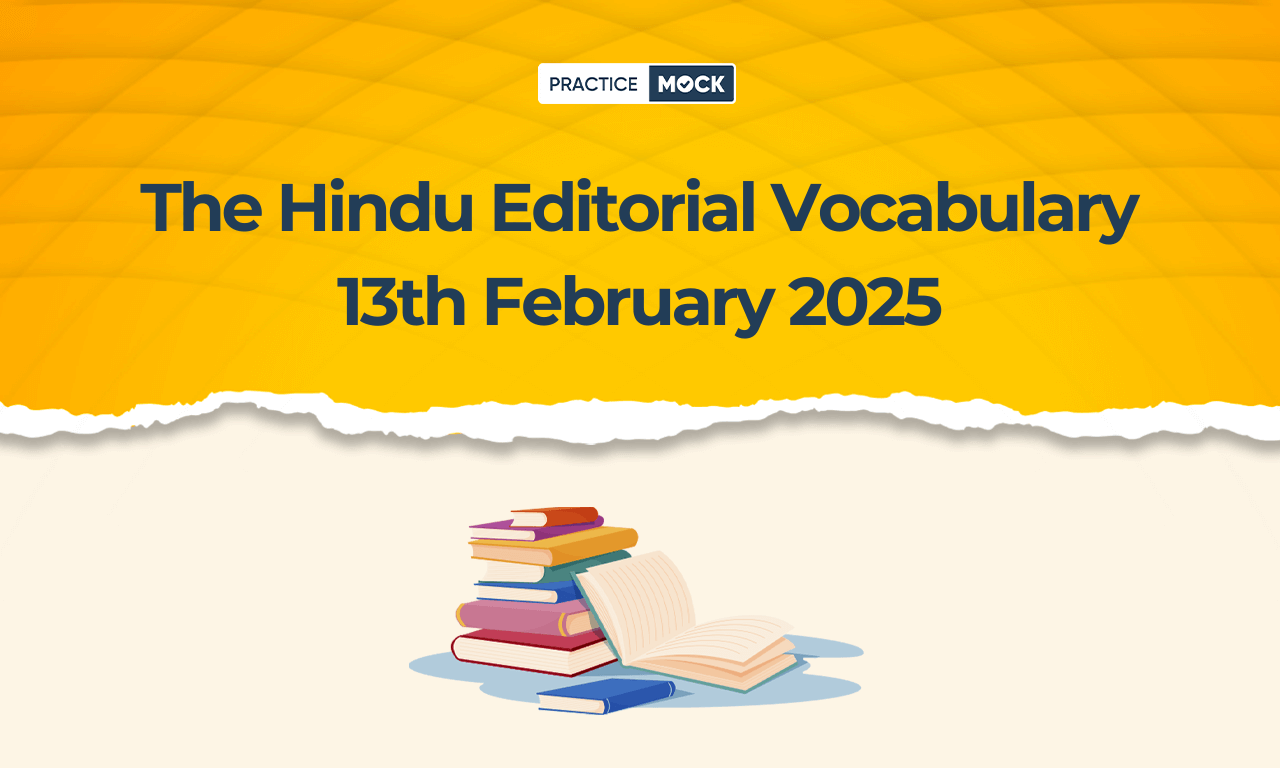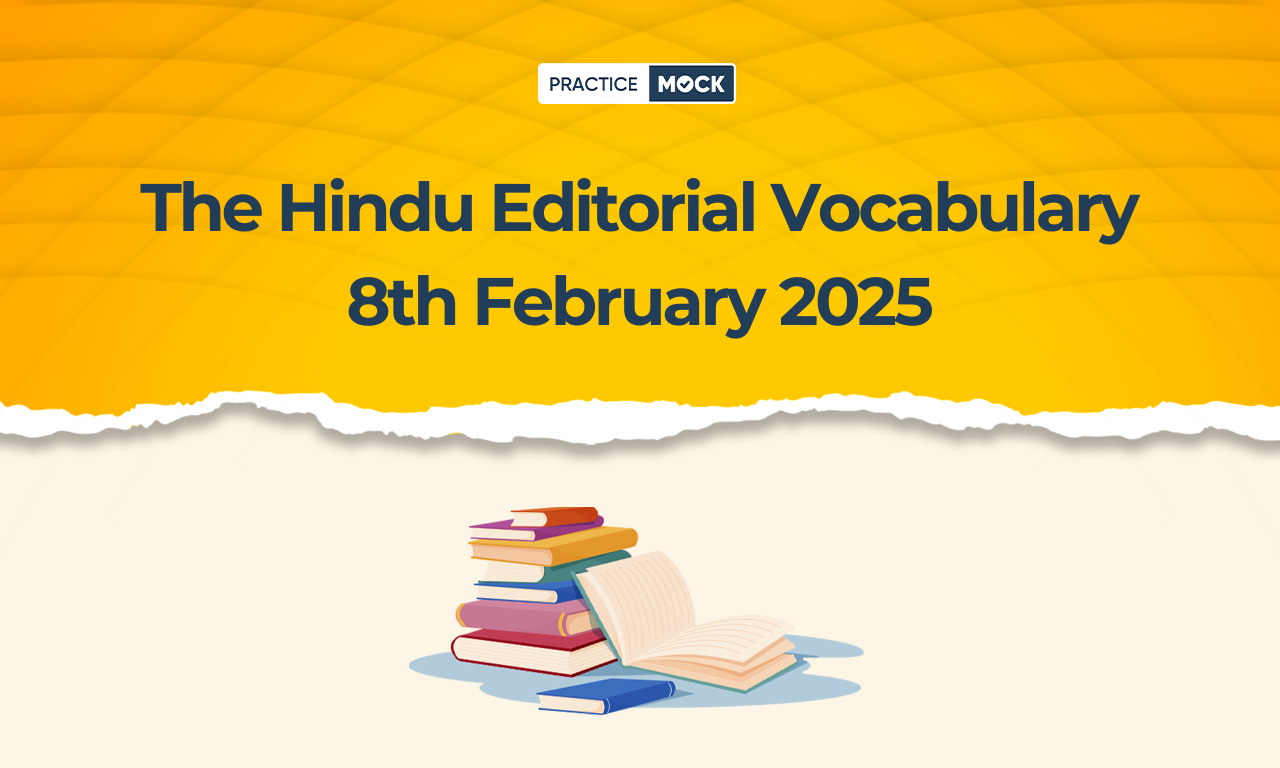The Hindu Editorial Vocabulary– February 12, 2024; Day 550


| Difficult Word/ Phrase | Contextual Sense |
| Mounted | To organize and begin an activity or event |
| Interventions | The act or fact of becoming involved intentionally in a difficult situation |
| Unprecedented | Never having happened or existed in the past |
| Suspension | The act of stopping something happening, operating, etc. for some time |
| Privilege | An opportunity to do something special or enjoyable |
| Resolution | An official decision that is made after a group or organization has voted |
| Communal | Belonging to or used by a group of people rather than one single person |
| Agenda | A list of matters to be discussed at a meeting |
| Destruction | The act of destroying something, or the fact of being destroyed |
| Precincts | A division of a city or town, esp. an area protected by one police station, or a division used for elections |
| Paradoxically | In a way that seems impossible or difficult to understand because of containing two opposite facts or characteristics |
| Witnessed | To see something happen, especially an accident or crime |
| Conventionally | In a way that is traditional and ordinary |
Parliamentary affairs: On the last session of the 17th Lok Sabha
The last 17th Lok Sabha session served as a preparatory forum for the polls
With the conclusion of the last session of the 17th Lok Sabha on Saturday, the bugle has been sounded and the battle lines drawn for the general election. Prime Minister Narendra Modi mounted (to organize and begin an activity or event) a sharp attack on the Congress and its leaders in his various interventions (the act or fact of becoming involved intentionally in a difficult situation) during the session, while avoiding criticism of any of the regional parties or their leaders. After the unprecedented (never having happened or existed in the past) suspension (the act of stopping something happening, operating, etc. for a period of time) of 146 members during the winter session, the last session began on a more cheerful note. All members were back in the House, including the 14 Members of Parliament (MP) whose cases were referred to the privilege (an opportunity to do something special or enjoyable) committees of the two Houses. The committees cleared their names, just ahead of the session. But Aam Aadmi Party (AAP) MP and leader Sanjay Singh, who was recently reelected to the Upper House, could not take oath on the ground that the breach of privilege cases against him moved in his previous term are still pending. The Rajya Sabha privileges committee has not even scheduled a meeting.
The session was extended by a day to debate a resolution (an official decision that is made after a group or organization has voted) on the Ram Temple. The Left parties were the only ones to take a clear stand in their boycott by announcing that they would not be a party to any communal (belonging to or used by a group of people rather than one single person) agenda (a list of matters to be discussed at a meeting). The other Opposition parties, not willing to invite any controversy, came up with different reasons to stay away. The Dravida Munnetra Kazhagam, in the Lok Sabha, cited the plight of Tamil fishermen, and, in the Rajya Sabha, focused on the Centre’s indifference towards the destruction (the act of destroying something, or the fact of being destroyed) caused by flooding in the State to stay away from the proceedings. The Trinamool Congress and AAP MPs were not to be seen. The last five years have been unprecedented in Indian parliamentary history. Parliament shifted to newer and much larger precincts (a division of a city or town, esp. an area protected by one police station, or a division used for elections), amid criticism of its design, from the British-era building. Paradoxically (in a way that seems impossible or difficult to understand because of containing two opposite facts or characteristics), just as parliamentarians got more room, the 17th Lok Sabha witnessed (to see something happen, especially an accident or crime) the continuous erosion of the role of the Opposition. In a first, the Lok Sabha functioned without a Deputy Speaker — a post that is conventionally (in a way that is traditional and ordinary) occupied by the Opposition — for the entire term. The five years were also marked by a steady decline in the Opposition’s bench strength in the Rajya Sabha. The Congress has only 30 members in the Upper House, far behind the 93 members from the Bharatiya Janata Party. The government had its way and say, while the Opposition spent time on the sidelines.
Unlock the power of words, one step further! Download the Lists of Word-Meanings of Previous Months here.
Recent Posts
Career Growth and Promotions for RBI Grade B Officers
Learn about the career growth and promotion structure for RBI Grade B officers and how…
300+ Reasoning Important Questions For BOB Apprentice 2025 Exam
In this article we are providing the 300+ Reasoning Important Questions For the BOB Apprentice…
Step-by-Step Preparation Strategy for PNB SO 2025 Exam
In this article we are providing the Step-by-Step Preparation Strategy for PNB SO 2025 Exam,…
IBPS PO Syllabus 2025, Check Prelims & Mains Detailed Syllabus
IBPS PO Syllabus 2025 will be released along with a notification pdf. Candidates can check…
What is the probation period for RBI grade B officers?
Learn about the RBI Grade B probation period, its importance, and how it shapes officers'…
IBPS SO Syllabus 2025, Check Prelims & Mains Pattern and Syllabus
IBPS SO Syllabus 2025 will be released on the official website. Candidates can check Prelims…


